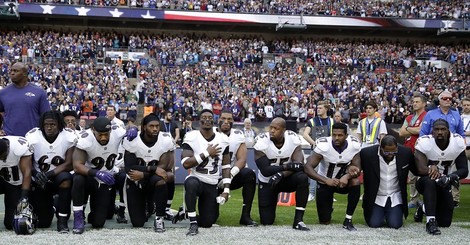Your podcast discovery platform
Curious minds select the most fascinating podcasts from around the world. Discover hand-piqd audio recommendations on your favorite topics.

piqer for: Climate and Environment Global finds
Andrea is a writer and researcher based out of Chicago. Andrea has a Bachelor's degree in environmental science from The Ohio State University and a Master's in Environmental Planning and Management at National Taiwan University, where she specialized in climate adaptation and urbanization. She writes for TaiwaneseAmerican.org, and sends out a biweekly newsletter which includes articles on politics, environment, identity, and intersections of race, class, and gender (http://eepurl.com/bPv-F5).
When American Football Players Take A Knee In Protest
In 2016, an American football player named Colin Kaepernick knelt during the singing of the national anthem before a game in protest of oppression of people of color (particularly black people) in the country, inciting widespread responses. It was not until this past weekend that what Kaepernick started became a bonafide movement. Over 130 players in American football and other sports knelt during the national anthem this Sunday.
Much of the support seems to have been in response to President Trump's involvement in the controversy. Trump, in his normal style, railed on protesters and NFL team owners. But, "the president had, once again, misrepresented the situation. The players are not, as a whole, protesting the national anthem. (There are bodies in the street, Kaepernick had said.) They are not protesting the flag. They are protesting police brutality against African Americans. They are protesting the lack of legal accountability for the officers who enact that violence. They are protesting, more broadly, the ways racism gets codified in America, the ways it is expanded from a personal evil into a societal one." Thus, many players who had previously not shown support of Kaepernick suddenly knelt beside him in solidarity, sending a message that Trump's comments were not condoned. Cheerleaders, singers, and others also joined the movement.
This sudden change of heart in over a hundred athletes of various different sports shows a serious shift in conversation. "The knees on the turf, the fists in the air: these are the gestures that history tends to remember—and that tend to change history’s path even as it moves forward."
